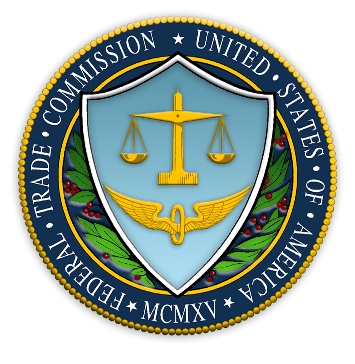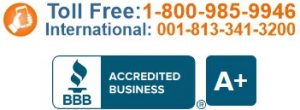Judgment Awards $6.3 Million in Alleged Timeshare Resale Scam
 The attorneys at Ballard Spahr have just released word that The Federal Trade Commission and the U.S. District Court for the Middle District of Florida have entered a final judgment and settlement against a number of fraudulent timeshare resale companies who employed illegal telemarketing techniques to bilk individuals out of thousands of dollars.
The attorneys at Ballard Spahr have just released word that The Federal Trade Commission and the U.S. District Court for the Middle District of Florida have entered a final judgment and settlement against a number of fraudulent timeshare resale companies who employed illegal telemarketing techniques to bilk individuals out of thousands of dollars.
The defendant contacted sellers via phone with a classic line: they already had buyers lined up and would just need an upfront fee to cover, in this case “earnest money deposits.”
This particular scam charged owners up to $3,150 in advance fees; while assuring clients their sales would be reviewed and approved by the FTC. Needless to say, the timeshares were never sold and the scammers routinely denied demands for refunds. The fraudulent timeshare resellers used PO Boxes to receive their funds (another red flag) and operated under a number of names including:
- National Solutions LLC
- Country Wide Timeshares
- Landmark Timeshares
- Quicksale Propertys
- VIM Timeshares
The defendants were charged with violating the FTC Act and the FTC’s Telemarketing Sales Rule. The judgment permanently bans all defendants from ever working in timeshare again, and imposes a fine of more than $6 million dollars. The huge settlement speaks to the FTC’s renewed dedication to the punishment of fraudulent timeshare resale operations.
While the FTC and regional district courts continue to fight timeshare resale scammers, it’s ever more important for consumers to remain diligent in protecting themselves while selling their timeshare. Timeshare sellers should always work with a licensed real estate broker who specializes in timeshares and doesn’t charge an upfront fee.
And don’t just take their word for it. Scammers will tell you anything to get your money. It’s up to you to do the research. Do they have current real estate licensing? Are they BBB accredited? Do they belong to any broker’s groups? Do they have a real street address?
If you an answer “yes” all those questions, you’re on the right track to finding a broker who can safely sell your timeshare. And remember, the most important lesson we can learn from stories like this is, never, ever pay in advance to sell your timeshare.
SOURCES:
http://www.jdsupra.com/legalnews/63-million-judgment-awarded-in-alleged-41576/
How to Check a Broker’s Licensing

 We’re always advising timeshare sellers to check the licensing of a potential timeshare broker before they do business with them.
We’re always advising timeshare sellers to check the licensing of a potential timeshare broker before they do business with them.
Checking a broker’s licensing is one of the most reliable ways to ensure the reputability of a given real estate broker; but it’s come to our attention that not many people know how to check a broker’s licensing.
We’ve put together this instructive article to help consumers keep themselves safe while selling a timeshare. Read on for more information about how to verify a timeshare broker’s licensing. As vacation ownership scams continue to increase in number, it’s becoming clear that the resale of timeshares should be handled like any other real estate transaction – with the help of a licensed broker. To keep yourself safe when selling your timeshare, the first step you should take is to verify the credentials of any potential broker or real estate agent. Here’s how:
Check the Association of Real Estate License Law Officials
The first place to start your research is ARELLO® – the Association of Real Estate License Law Officials. One of the reasons consumers find it so difficult to verify licensing is that every state does things a bit differently.
ARELLO is a valuable tool because it helps encourage licensure and education recognition between jurisdictions. When you visit the ARELLO website you’ll have the option to verify licensing by either license number or the name and state in which the broker resides.
If your potential broker holds current licensing, ideally you’ll see recognition from both the National REALTORS® Database, and the state division of real estate. Bookmark both reports, and while there, take down their license number, in the “license information” section of the report.
Verify Credentials With the State
This is where things can get tricky; but if you’ve completed the first step and have a license number to search by, you shouldn’t have any problem. First, you’ll have to find the licensing authority for the particular state in which your potential broker resides.
The easiest way to do this is with a simple Google search for the [state] + “real estate licensing” authority. Because a majority of timeshare brokers live and operate in Florida, we’ll use the Sunshine State as our example.
So, to find the state licensing authority for Florida, your search might look something like this: “Florida real estate licensing”. Some states will have different terms for their real estate licensing authority like “Commission,” “Division,” or “Board.”
Because of its authority as a governmental resource on the web, the regulatory agency you’re looking for should usually show up first. From the state licensing commission, you can search by license number to learn full details like:
- Main Address/ License Location
- License Type
- License Rank
- Status (ie. Active/Not Active)
- Date License Earned
- Date License Expires
Incidentally, if you know your broker is located in Florida, you can search for licensing with the Florida Department of Business and Professional Regulation.
If you’re still unsure, pick up the phone! Call the licensing agency and ask to speak with someone in person who can help you verify the licensing. If everything checks out, you can feel confident that your potential timeshare broker is legally licensed to practice real estate in his or her state, and that any transactions they make on your behalf will be valid.
Check with the LTRBA
Recommended by the TODAY show, the Licensed Timeshare Resale Brokers Association is a group of real estate brokers who deal exclusivley with timeshares and who work hard to advocate on behalf of timeshare consumers. LTRBA members must adhere to strict membership rules that include: No Uprfront Fees, transparent and ethical resale dealings, and full-disclosure to all parties. Timeshare Broker Sales’ managing broker Don Nadeau currently serves as LTRBA membership chairman.
Bonus Points
Still, if you’re looking for brownie points; go the extra mile and check your reseller with the Better Business Bureau to find out if the broker has any complaints filed, and whether they were resolved satisfactorily. Legitimate brokers should be listed with the BBB and, better yet, BBB accredited.
Ten Signs it’s a Timeshare Scam
 Every year millions of people fall victim to scammers when trying to buy a timeshare or sell their timeshare. In fact, a recent Forbes article stated that “timeshare gripes were the fastest-growing category” of consumer complaints in 2012.
Every year millions of people fall victim to scammers when trying to buy a timeshare or sell their timeshare. In fact, a recent Forbes article stated that “timeshare gripes were the fastest-growing category” of consumer complaints in 2012.
The unfortunate truth is that timeshare scammers prey on vulnerable individuals who are often in desperate financial situations. But don’t lose hope. If you know what to look for, you can easily spot a potential timeshare scammer. If your potential reseller meets any or all of the criteria below, back away slowly.
-
They Initiated Contact – Beware of any “timeshare reseller” that initiates contact with you. Cold callers represent by far the largest single group of timeshare scammers. All told, cold-callers have stolen nearly $1 billion from innocent consumers. Most ‘cold-callers’ have gleaned your information from a list of owner’s names they purchased. Many times, cold-callers will try to convince you they’ve got a buyer already lined up or even that they’ve already sold your timeshare and just need a check to cover the closing costs. Don’t fall for it!
-
They Require for an Upfront Fee – You should never pay an upfront fee to sell your timeshare. In most cases, you should treat a timeshare like you would any other real estate transaction and work with a licensed real estate broker. Choosing a real estate broker who specializes in timeshares will help you sell your property safely and securely; with a commission paid only at the time of sale. We believe that paying an upfront fee is the number one mistake timeshare sellers make.
-
They Aren’t BBB Accredited – The BBB is a nonprofit organization focused on advancing marketplace trust. Serving as an intermediary between consumers and businesses, the BBB alerts the public to scams and handles consumer complaints. Check for BBB accreditation and don’t take a badge on the website as a sure sign. Anyone can copy and paste a logo onto their website. A legitimate time share broker will link the icon to their actual BBB rating.
-
They Don’t Have a Street Address – Most scam artists don’t want you to be able to locate them easily. After all, if you can find them easily, so can the authorities. That’s why they often only give an email address, cell phone number or a P.O. box. On the other hand, reputable companies DO want you to be able to contact them quickly and easily. They’ll offer several ways: telephone, physical address, email, fax, etc.
-
They Ask for Credit Card or Banking Information – You should never have to give credit card or bank account information to timeshare resellers upfront. A legitimate timeshare broker will will operate through a licensed closing company with secure escrow procedures.
-
Poor Grammar and Spelling Mistakes – Many times, scammers aren’t willing to invest in quality content. Sometimes, they purposely use nonsensical language to confuse consumers. Grammatical errors and spelling mistakes often indicate that the message was written by a scam artist in a foreign country. This type of nonsensical language is a common characteristic of a scam.
-
They Overuse Big, Important-Sounding Words – Scammers sometimes use official-sounding words like “national,” or “federal” or they display an official-looking seal to fool you into thinking they are legitimate. Scrutinize what you’re reading and perform a simple Google search to check the validity of their claims.
-
They Employ High Pressure Tactics – If a potential reseller acts in any way aggressive, or if he or she tries to force you into acting right away (thereby sacrificing the all-important research step), run for the hills. A legitimate company is more than happy for you to take your time researching their credibility, and will provide you with every resource available to help you do so.
-
It Sounds Too Too to Be True – Timeshare resellers may contact you with some pretty enticing claims. They might tell you they’ve got a buyer lined up to buy your timeshare, that the market in your area is “hot” and that they’re overwhelmed with buyer requests, or that they can guarantee a sale within a specific time. Be a skeptic. You can’t expect to get nearly what you paid for your timeshare from the developer. Get a free market survey to determine what your timeshare is really worth.
-
They Are Evasive or Withhold Details – Any company offering legitimate timeshare resales will provide you with all the information you need, without working to portray a false appearance of credibility; and will have verifiable references that you can contact.
So What Can You Do?
Contact the state Attorney General and local consumer protection agencies in the state where the reseller is located. Ask if any complaints are on file. You also can search online for complaints and check with the BBB.
Check the license. Ask for licensing information and verify it with the Real Estate Commission. Only deal with licensed brokers and always ask for references.
Before you sign a contract with a reseller, get the details of the terms and conditions of the contract. It should include: the services the reseller will perform; the fees, commissions, and other costs you must pay and when; and who is responsible for documenting and closing the sale.
By keeping your eyes open for the ten warning signs listed above, you can save a lot of trouble and money. If you suspect you’ve been scammed online, file a complaint with your state attorney general’s office and the Internet Crime Complaint Center (known as the IC3).
The IC3 not only collects complaints but also analyzes them, links similar complaints, and discerns patterns in order to help law enforcement identify the scammers.
FTC Bans Timeshare Reseller, Imposes $4.2 Million Fine

 Under a settlement with the Federal Trade Commission, Albert M. Wilson, owner and manager of Vacation Property Services, Inc. has been permanently banned from the timeshare resale and rental business, and from all telemarketing. The settlement order also imposes a judgment of more than $4.2 million.
Under a settlement with the Federal Trade Commission, Albert M. Wilson, owner and manager of Vacation Property Services, Inc. has been permanently banned from the timeshare resale and rental business, and from all telemarketing. The settlement order also imposes a judgment of more than $4.2 million.
The case is part of the FTC’s ongoing effort to crack down on scammers who use fraud and deception to take advantage of consumers in financial distress.
The settlement followed a court ruling that the company violated the FTC Act and Telemarketing Sales Rule (TSR) by misrepresenting the company’s refund policy and the existence of potential buyers. The complaint also charged the defendants with calling hundreds of thousands of consumers whose phone numbers are on the FTC’s Do Not Call Registry.
Vacation Property Services, Inc. was found to have made tens of thousands of unsolicited telemarketing calls to timeshare owners falsely claiming that they already had, or could quickly find, buyers for the owners’ timeshares. Vacation Property Services demanded that clients pay a large up-front fee to facilitate the sale.
This case one again highlights the importance of choosing licensed and BBB accredited timeshare brokers to sell your vacation property.
The FTC goes on to offer the following stipulations for avoiding fraud and scams when attempting to sell your timeshare on the resale market:
- Don’t agree to anything on the phone or online until you’ve had a chance to check out the reseller. Contact the Better Business Bureau (www.bbb.org), state Attorney General (www.naag.org), and local consumer protection agencies (www.consumeraction.gov) in the state where the reseller is located. Ask if any complaints are on file.
- Ask the salesperson for all information in writing.
- Ask if the reseller’s agents are licensed to sell real estate where your timeshare is located. If so, verify it with the state Real Estate Commission. Deal only with licensed real estate brokers and agents, and ask for references from satisfied clients.
- Ask how the reseller will advertise and promote the timeshare unit. Will you get progress reports? How often? Ask about fees and timing. It’s preferable to do business with a reseller that takes its fee after the timeshare is sold. If you must pay a fee in advance, ask about refunds. Get refund policies and promises in writing.
- Don’t assume you’ll recoup your purchase price for your timeshare, especially if you’ve owned it for less than five years and the location is less than well-known.
Timeshare Resale Accountability Act Becomes Law
It’s finally official – this week, Florida Governor Rick Scott signed Florida’s Timeshare Resale Accountability Act into law.
The main goal of the Timeshare Resale Accountability Act is to protect timeshare sellers from deceptive or unethical business practices and timeshare scams. Unfortunately, the economic climate of recent years has contributed to timeshare resale scams being Florida’s No. 1 fraud complaint.
These scams generally involve thousands of dollars in upfront fees; and until now were made possible by lax governmental regulation. The new timeshare law outlines a number of provisions, most based on transparency, to protect timeshare sellers. Among the most important:
- Timeshare resale advertisers must provide sellers with the purchaser’s name and address before they can claim there is an interested buyer.
- Timeshare resale advertisers must provide a written contract for agreement of services. This contract must be signed by the timeshare seller before the resale agent may collect any fees or engage in any resale advertising activities.
- Timeshare sellers have seven days to cancel any signed contract with a timeshare resale advertiser. Once cancelled, timeshare resale advertisers have 20 days to provide a full refund to the seller.
- Penalties will be enacted on any timeshare resale advertiser which violates the law’s provisions. Penalties may not exceed $15,000 per violation under the Unfair and Deceptive Trade Practices Act.
These are great first steps in helping to prevent fraud and scams in the timeshare resale industry. As licensed timeshare brokers, we stand in full support of the provisions listed above, and applaud lawmakers for taking the time to pass this important act into law.
That said, there are a few issues that the law still doesn’t address. Agencies can still charge a big upfront fee (often several hundred dollars) to “advertise” your timeshare. The act also fails to address the question of unlicensed timeshare resellers, who are typically the most active in misrepresenting what they can accomplish.
Nonetheless, at Timeshare Broker Sales, we’re pleased to see this important step in protecting vacation ownership consumers all over the country.


